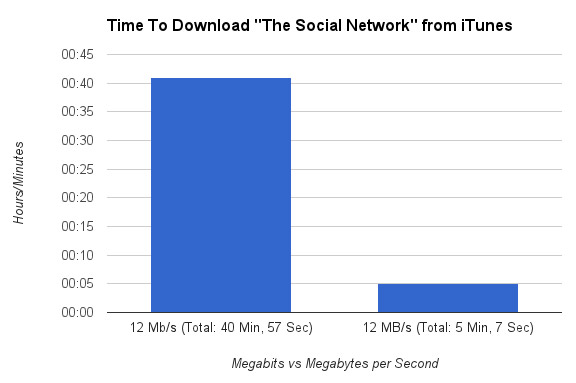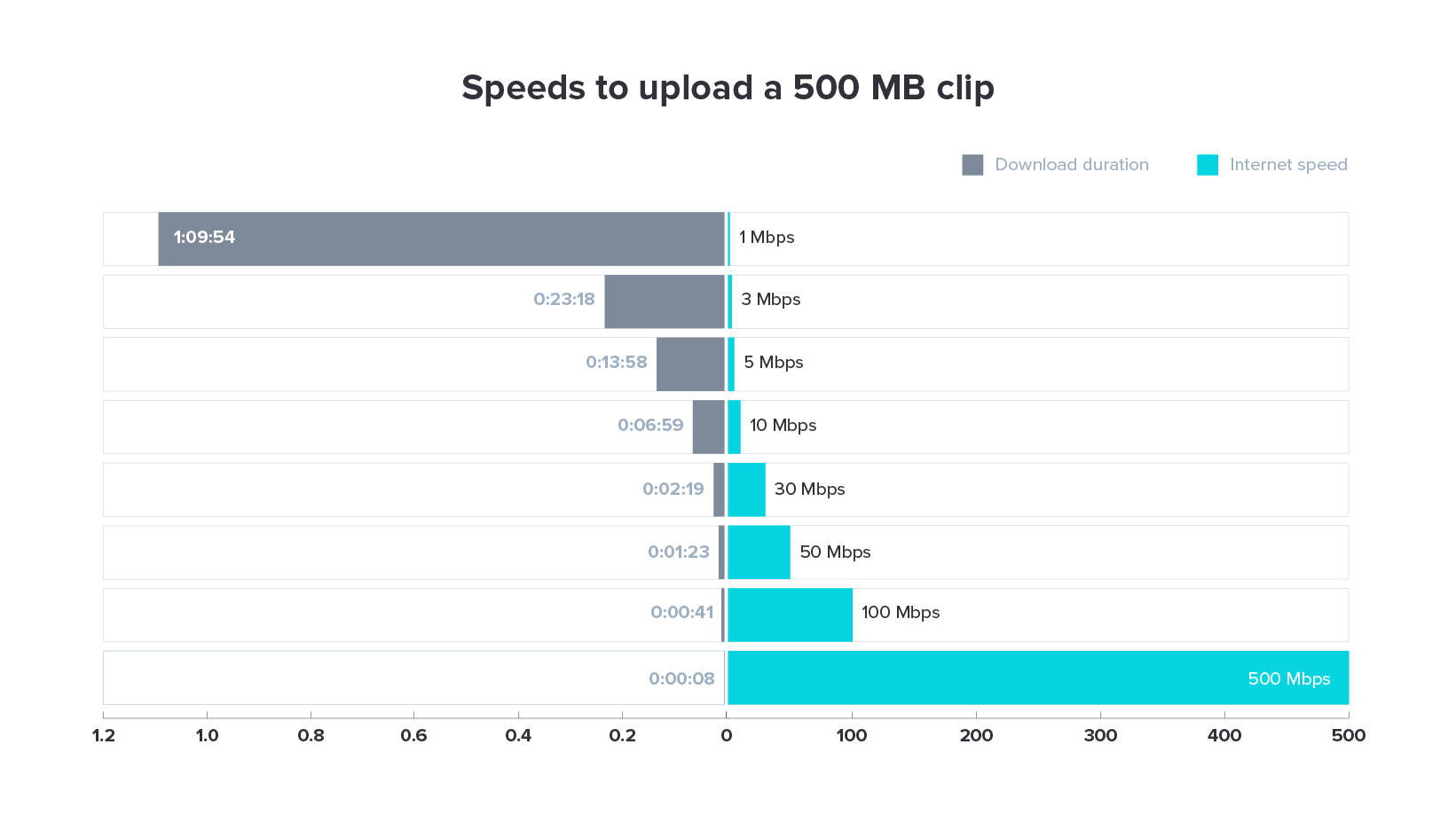Demystifying Megabits Per Second: What Customers Required to Know
Demystifying Megabits Per Second: What Customers Required to Know
Blog Article
How Megabits Per Second Influence Your Online Activities
The concept of megabits per second (Mbps) plays an essential duty in shaping our on-line experiences. As digital activities proliferate, comprehending the ramifications of Mbps on video gaming, streaming, and video clip conferencing comes to be increasingly important. Higher Mbps can improve performance and minimize disruptions, while poor speeds might promote irritation and inadequacy. Examining your household's details needs in connection with these speeds is essential, especially as several devices try data transfer. Yet, the nuances of just how Mbps impacts different online activities require more expedition, specifically as our dependence on digital connection continues to evolve.
Comprehending Megabits Per Second
When taking into consideration net rate, it's important to recognize the principle of megabits per second (Mbps), which functions as a typical measurement for information transfer rates. This metric evaluates how much information can be transferred over a web link in one second, giving a clear understanding of performance capacities - Megabits Per Second. For context, one megabit amounts to one million bits, and Mbps is frequently used to express data transfer for different on the internet tasks
A greater Mbps suggests a much faster internet connection, enabling individuals to execute tasks such as downloading documents, surfing internet sites, and involving in online gaming more effectively. For example, common surfing needs around 1-5 Mbps, while streaming high-definition video clip might demand 5-25 Mbps. Recognizing these requirements is essential for determining the suitable web rate needed for particular activities.
Additionally, the number of tools connected to a network can influence general efficiency. Numerous individuals streaming, gaming, or downloading all at once can stress available transmission capacity, causing slower rates - Megabits Per Second. Reviewing personal online practices and demands is vital in picking a web strategy that lines up with one's needs, ensuring a seamless digital experience
Streaming and Buffering Issues
Streaming high-def material has actually come to be a staple of modern-day on the internet amusement, yet it is often come with by frustrating buffering problems. These disturbances can considerably take away from the viewing experience, bring about discontentment and potential loss of audience involvement. Buffering takes place when the information transmitted from the streaming solution is not received quickly enough to preserve a smooth playback, often as a result of insufficient net rate determined in megabits per second (Mbps)

In addition, real-time streaming can be affected by network blockage, which occurs when several devices share the same data transfer. Consequently, optimizing connection speed and making certain appropriate Mbps is vital for a smooth streaming experience. As streaming solutions continue to evolve, understanding the impact of Mbps on buffering issues stays essential for customers looking for undisturbed amusement.
Online Video Gaming Efficiency
The impact of net rate on on-line tasks expands beyond streaming, substantially influencing online video gaming performance. In affordable gaming, low latency and high bandwidth are essential for a seamless experience. A rapid connection minimizes lag, allowing players to react swiftly to in-game events, which can be the distinction between triumph and defeat.
Transmission capacity, gauged in megabits per second (Mbps), plays a crucial duty in supporting multiple tools and pc gaming systems all at once. Not enough data transfer can cause went down connections or minimized video game top quality, negatively influencing gameplay. Online multiplayer games need substantial information transfer, particularly during peak gaming hours when countless gamers are online.
In addition, the type of game can additionally determine the essential web rate. Hectic first-person shooters require higher rates to preserve responsiveness, while turn-based approach games may work reasonably well on lower speeds. As online video gaming proceeds to progress, with raising graphical fidelity and even more complex multiplayer atmospheres, the need for higher Mbps will only heighten. As a result, gamers need to ensure they have appropriate web rate to enhance their pc gaming performance and overall experience. Purchasing a robust web connection is crucial for gamers looking to enhance their efficiency and satisfaction.
Video Conferencing Quality
In today's digital landscape, video clip conferencing high quality is heavily influenced by internet rate, specifically in terms of data transfer and latency. Premium video calls require adequate transmission capacity to send sound and video information perfectly. Usually, a minimum of 1.5 Mbps upload and download speeds is suggested for common definition video, while high-definition video conferencing usually requires at the very least 3 Mbps.
Latency, or the delay in between sending and getting data, also plays an important function in the individual experience. Greater latency can lead to resemble, lag, and disjointed communications, which can prevent cooperation and engagement throughout meetings.
In addition, several participants in a video clip seminar can stress available transmission capacity, requiring even greater speeds. Network congestion, commonly brought on by synchronised activities like streaming or downloading, can even more deteriorate video clip quality. Thus, for organizations depending on video clip conferencing for remote cooperation, understanding the connection between megabits per overall and second communication high quality is vital for keeping efficiency and enhancing virtual interactions.
Picking the Right Web Plan
Selecting an appropriate internet strategy is crucial for guaranteeing optimal efficiency in different online tasks, particularly in setups that demand high bandwidth, such as video clip conferencing and online video gaming. Megabits Per Second. When thinking about a web strategy, it is important to examine both the rate and data allowance to match your details use demands
For households with numerous individuals involving in synchronised tasks, a plan supplying higher megabits per second (Mbps) is recommended. Commonly, a minimum of 25 Mbps is appropriate for typical streaming and surfing, while plans exceeding 100 Mbps are preferable for even more intensive jobs. Furthermore, consider the nature of your online activities; video clip conferencing requires a minimum of 1.5 Mbps submit speed, while official site on-line gaming may require a reduced latency but consistent link.
It is likewise essential to assess your data continue reading this cap. Unlimited data plans can stop strangling and disruptions, particularly if heavy use is anticipated. Finally, research provider in your area, as accessibility and pricing can vary. By thoughtfully choosing a web strategy customized to your requirements, you can boost your online experience, making sure smooth, undisturbed accessibility to your preferred activities.
Conclusion
In final thought, the relevance of megabits per second (Mbps) in forming online tasks can not be overemphasized. A detailed understanding of individual or home Mbps demands is necessary for picking an appropriate internet strategy that appropriately supports diverse online tasks and customer needs.

Commonly, a minimum of 25 he said Mbps is ideal for common streaming and surfing, while plans exceeding 100 Mbps are preferable for more intensive tasks. Additionally, think about the nature of your online tasks; video clip conferencing requires at the very least 1.5 Mbps submit speed, while on-line video gaming might need a reduced latency yet constant link.
Report this page